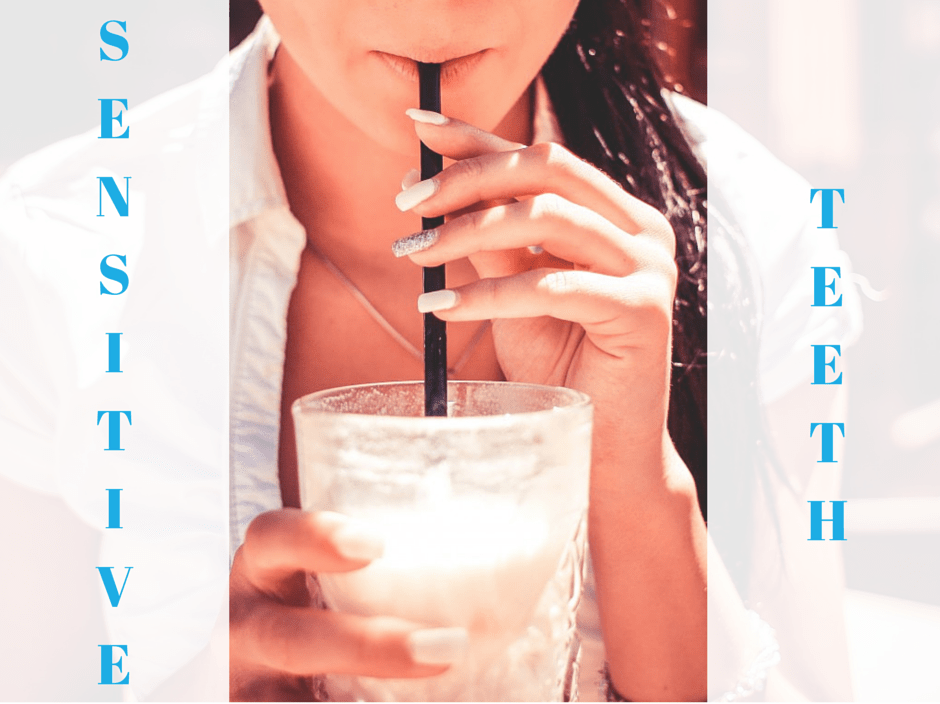Brrrrrr…. it’s cold outside. Winter is here, and every year as the temperature starts dropping, patients start noticing more tooth sensitivity as they’re breathing in that cold air. They often ask us what causes this and what can be done to fix it.
Sensitive teeth are a common problem. For some, it’s just one or two teeth, but for others ALL of their teeth may be sensitive. Most often the cold is the trigger, but sometimes heat or sweets can trigger sensitivity in teeth. Why does this happen?
Below the outer layer of hard enamel, which covers and protects the crowns of our teeth, is a softer inner layer called dentin. Dentin contains thousands of teeny tiny tubules that lead to the inner core of the tooth (the pulp) where the nerve is. So, if dentin is exposed to cold, for example, the cold travels down these tubules, where it reaches the nerve and leads to the pain you feel. On parts of your teeth where the enamel is thinnest, you may notice more sensitivity, but very often areas of gum recession tend to be most sensitive for people. Gum shrinks away from these areas, leaving the roots of your teeth exposed, with no enamel protecting them.
There are many things that can contribute to increased sensitivity. Basically, anything that causes wear or thinning of the enamel, such as brushing too hard, clenching and grinding, acidic foods, or even abrasive whitening products, can exacerbate the issue. Or it might be something more, like tooth decay, gingivitis, a cracked tooth, or possibly an infection.
Here are a few things you can do that might help:
- First, visit your dentist to determine WHY you’re having the sensitivity (only then will you know how you can fix it).
- Always brush and floss regularly – if plaque sits on these areas too long, it can increase sensitivity too.
- Use a soft-bristled toothbrush.
- Try using toothpaste for sensitive teeth – there are lots of brands out there, so find one that works for you.
- If you grind your teeth, try your best to avoid it and wear a protective night guard while sleeping.
- There are special products, like fluoride varnishes, that can be placed over these sensitive areas to reduce discomfort as well.
Remember, nothing is ever too small to bring up with your dentist, so just ask us and we’ll do our best to help. Stay warm!
